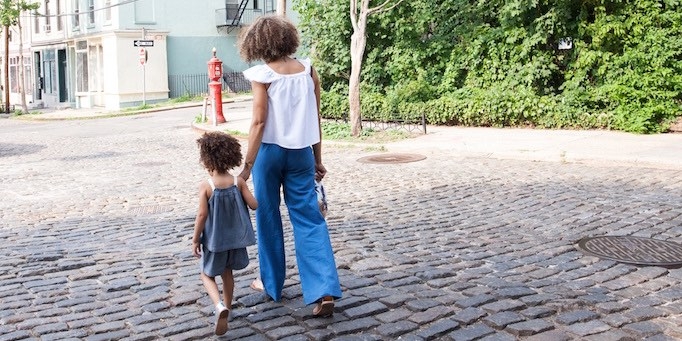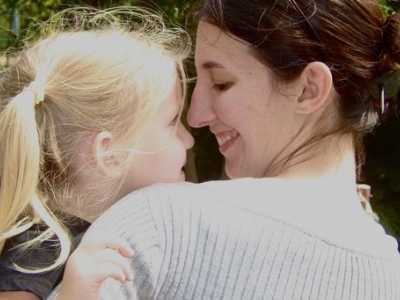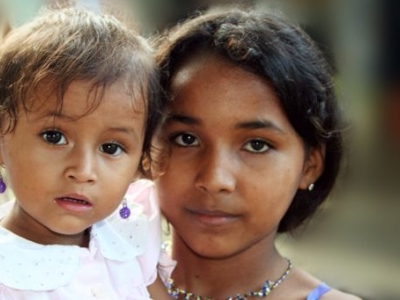
The Compassionate Child
How to help your child express their feelings and care for their friends, family and world.
The other day, my six-year-old son was sitting on the kitchen bench with his sister, helping me make pancakes. In his enthusiasm, he began to bounce up and down on the bench. Of course, in a matter of seconds he bumped his head on the bottom of the overhanging cupboard and burst into tears. My nine year old daughter immediately went to the freezer and produced a frozen bottle which she wrapped in a tea towel. Passing her brother the makeshift icepack, she wrapped her arms around him and began to tell him, ‘it’s okay. You’re all right. Everything will be okay.’
It was a beautiful demonstration of kindness, and a personal reminder that children have a great capacity to feel for others and to offer comfort when it is needed.
While some kids are naturally more empathetic than others, the latest research in social and emotional learning (SEL) and neuroplasticity (the brain’s ability to learn and reshape itself) are proving that children can be taught compassion. Researchers such as developmental psychologist, Dr Kimberly Schonert-Reichl, and communication pathologist and audiologist, Dr Carolyn Leaf, bring good news for parents. According to their findings, we have the ability to shape our children’s behaviour and teach them the emotional intelligence they need to navigate their own emotional lives and to respond compassionately towards others.
This confirms God’s instruction in Proverbs 22:6 to ‘train up a child in the way he should go’ and stands as a guide for parents, caregivers and role models carrying the assurance that our work will not be in vain because ‘even when he [the child] is old, he will not depart from it.’
So what are the steps that we can take to encourage our kids to develop compassion?
1. Encourage children to talk about their feelings
Part of the work of teaching compassion and emotional intelligence involves helping our children to identify their own feelings and manage them appropriately. As parents, it can be easy for us to rush into damage control when our children are upset, defiant or angry. In our efforts to stop the negative behaviour or emotion, we sometimes miss the invitation that the moment is offering us. Talking with our children about how they are feeling provides an opportunity for them to recognise and communicate their own emotions.
- Ask questions such as, ‘how are you feeling?’, ‘do you want to talk about it?’ or ‘do you need some space to calm down?’
- Validate your child’s responses with statements such as, ‘that must have made you feel very frustrated’ or ‘I can understand why you feel mad’. By doing so, we are demonstrating empathy and helping our children to move through their emotions.
- Take their feelings into account as you work towards resolution. Transition with statements such as, ‘even though you are feeling scared, you still need to go to school. What can we do to help you feel safe?’.
In addition to building resilience, we are strengthening our children’s own emotional intelligence aRachel Wallace and her husband, Nathan, live in Melbourne where they parent two incredible kids who challenge and delight them daily. She is currently studying professional writing, loves seeing what God does with the sky each day and aims to encourage and empower others through her writing. Find out more and follow Rachel's blog at https://rachelwallacewritesat.blogspot.com.au/nd modelling empathy, which is an important part of assisting our children to develop compassion towards others.
2. Help your children see how other people feel
In addition to understanding their own emotions and responses, we want our kids to be able to see past themselves and to identify with the feelings of others. A great opportunity for this occurs when our children experience conflict. When our child comes home from school armed with horror stories about how little Johnny pushed them over in the playground or (gasp!) we find out that our child is the one doing the pushing, we can use the same communication techniques discussed to help our kids change their perspective.
Talk about how it feels to be bullied. Discuss why Johnny might be behaving badly. Perhaps he is worried, angry or sad and doesn’t know to express his emotion properly. If your child is the one doing the bullying, ask them what they could do to make the person they have hurt feel better.
3. Involve your children in helping others
As much as we may wish to protect our children from the challenges and tragedies ‘out there’, some exposure can go a long way in developing our children’s sense of compassion.
From an early age, my children were gently introduced to the reality that not all kids grow up with the same luxuries they have: some children experience hunger, inadequate shelter, and cannot afford schooling or medicine. At the time of the Haiti earthquake a few years back, our family were sponsoring a child who lived close to the area most damaged. As a family, we talked about the incident; we used the online register set up by our sponsorship program to ensure that our friend was safe and we prayed together. Empowering our children with an action helps them feel they can make a change, even if it is a small one.
Some ideas to help kids get involved in helping others include:
- Talking about local and global events. Remember to keep details simple and age-appropriate and ask your child, ‘what can we do to help?’. It could be as simple as writing a letter or praying for a region that has experienced a hardship.
- Involve your children in charity work. Have them choose a gift for a wishing-tree program or similar Christmas gift charity, let them help gather clothes and toys for a collection.
- Practice random acts of kindness. Take biscuits to the local Police Station or Fire Brigade, write a thank-you to your Doctor, a teacher, a Pastor or someone you feel grateful for.
Don't underestimate a child's capacity for compassion
Dr. Schonert-Reichl suggests that children have a great capacity for compassion. Children as young as two display attitudes of altruism, and practicing compassion has its own reward – our children will experience the positive feelings associated with reaching beyond themselves to help others.
We can encourage this process by looking for opportunities and by validating our children’s identities. Telling my daughter, ‘I’m so proud of you. You are such a caring person’ when she helps her brother is another simple step I can take to protect and develop her God-given capacity for compassion.
Rachel Wallace and her husband, Nathan, live in Melbourne where they parent two incredible kids who challenge and delight them daily. She is currently studying professional writing, loves seeing what God does with the sky each day and aims to encourage and empower others through her writing. Find out more and follow Rachel's blog at https://rachelwallacewritesat.blogspot.com.au/
For more articles from Growing Faith, subscribe to our monthly e-newsletter.
To hear about the latest books and resources from Youthworks Media, subscribe here.







